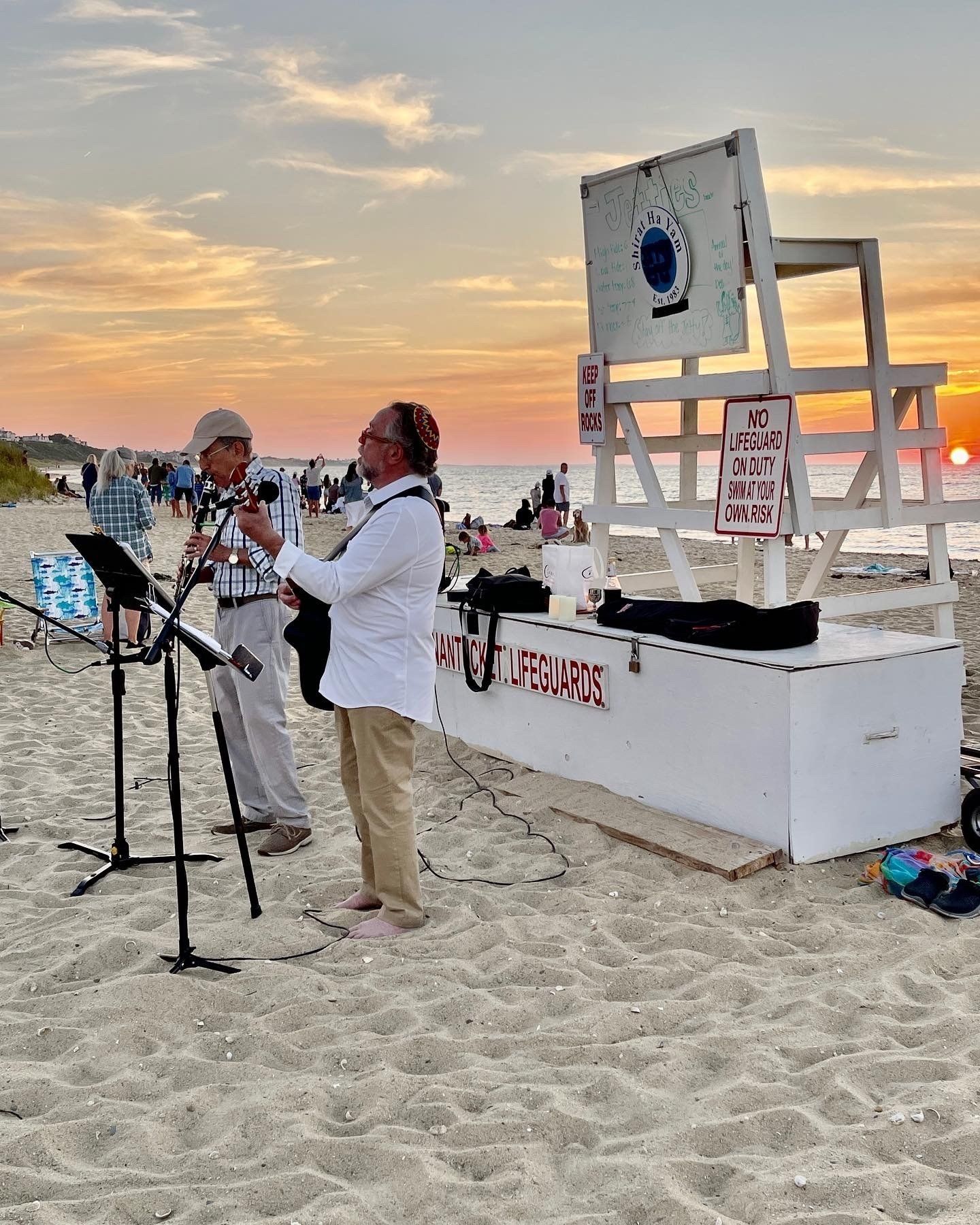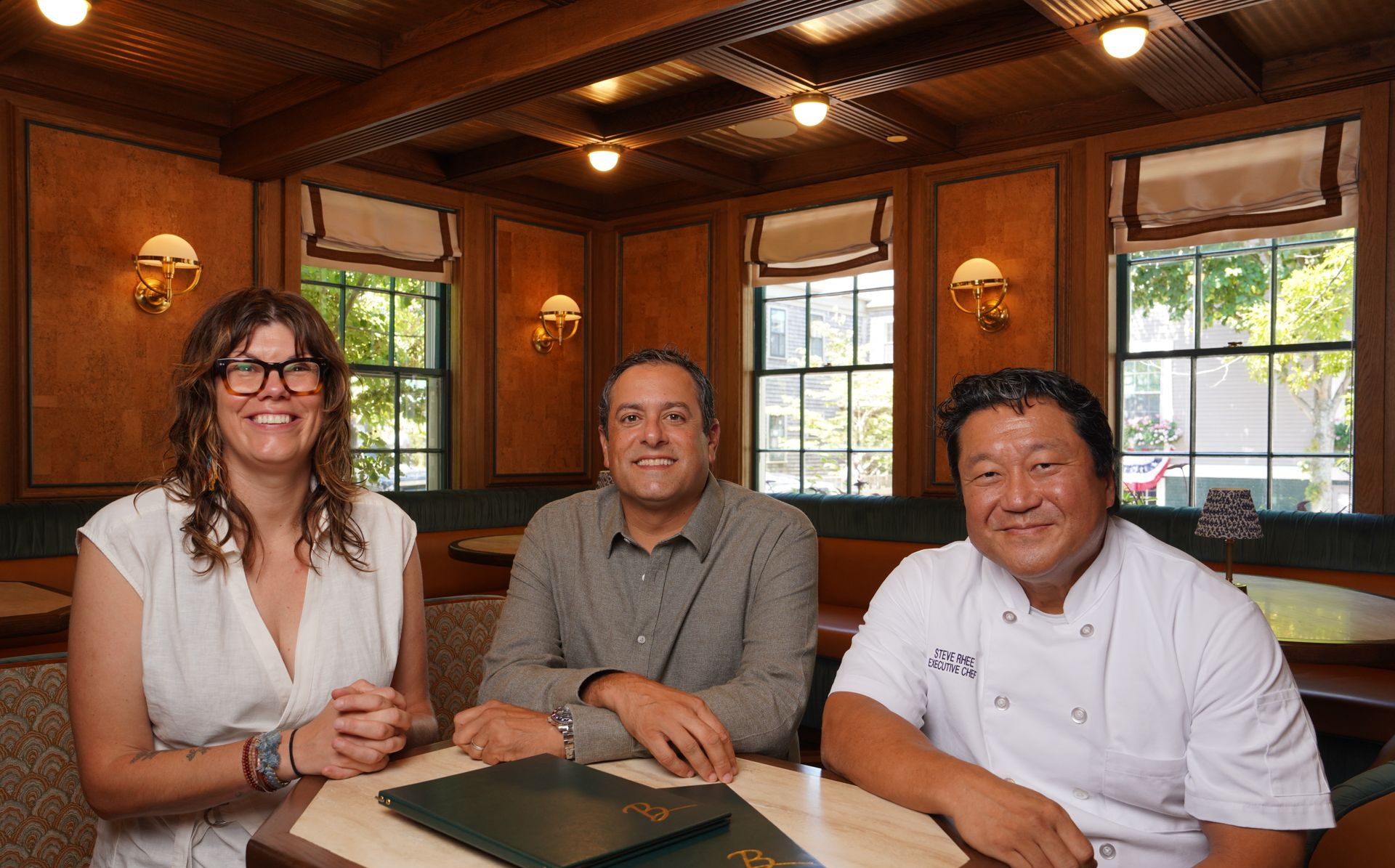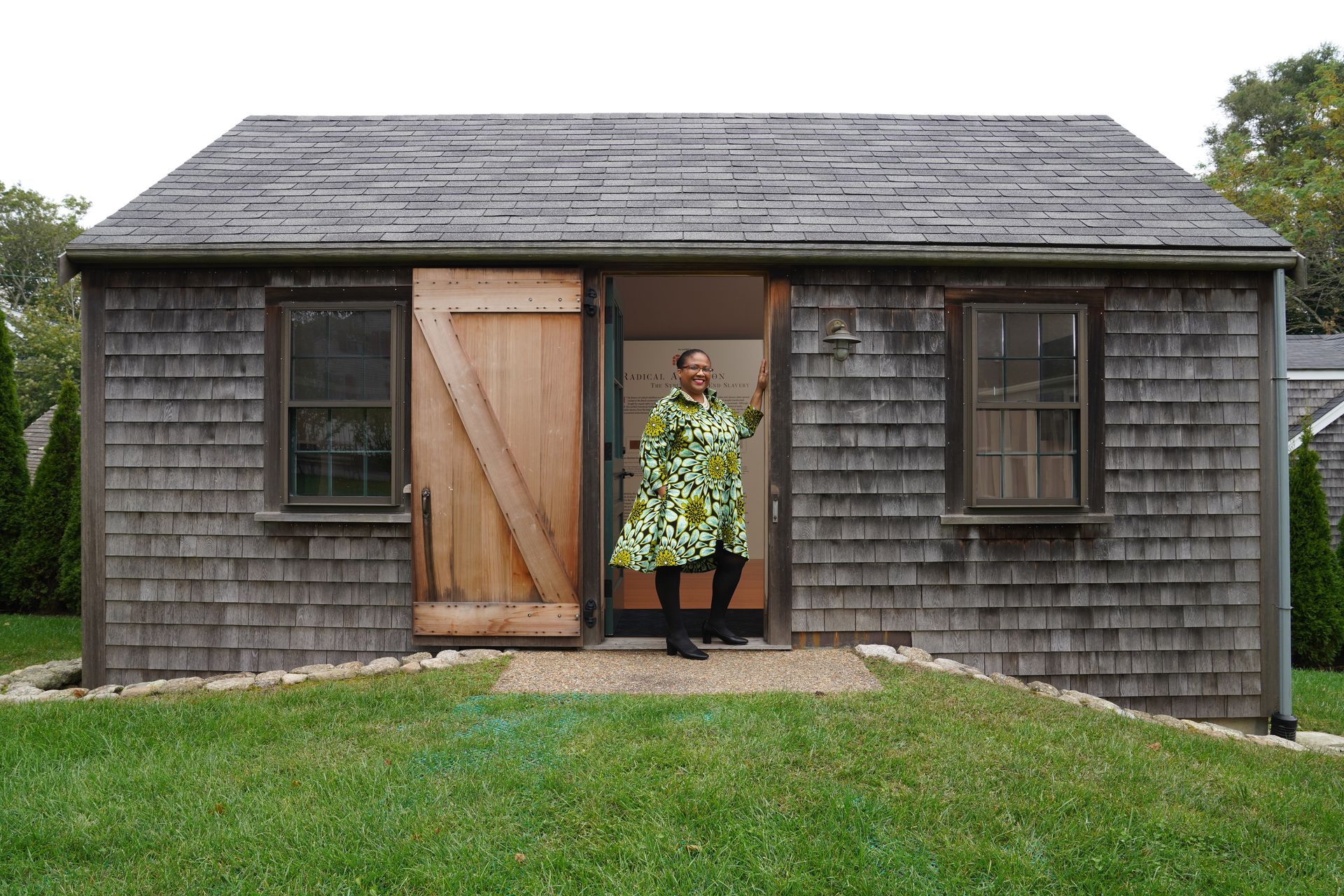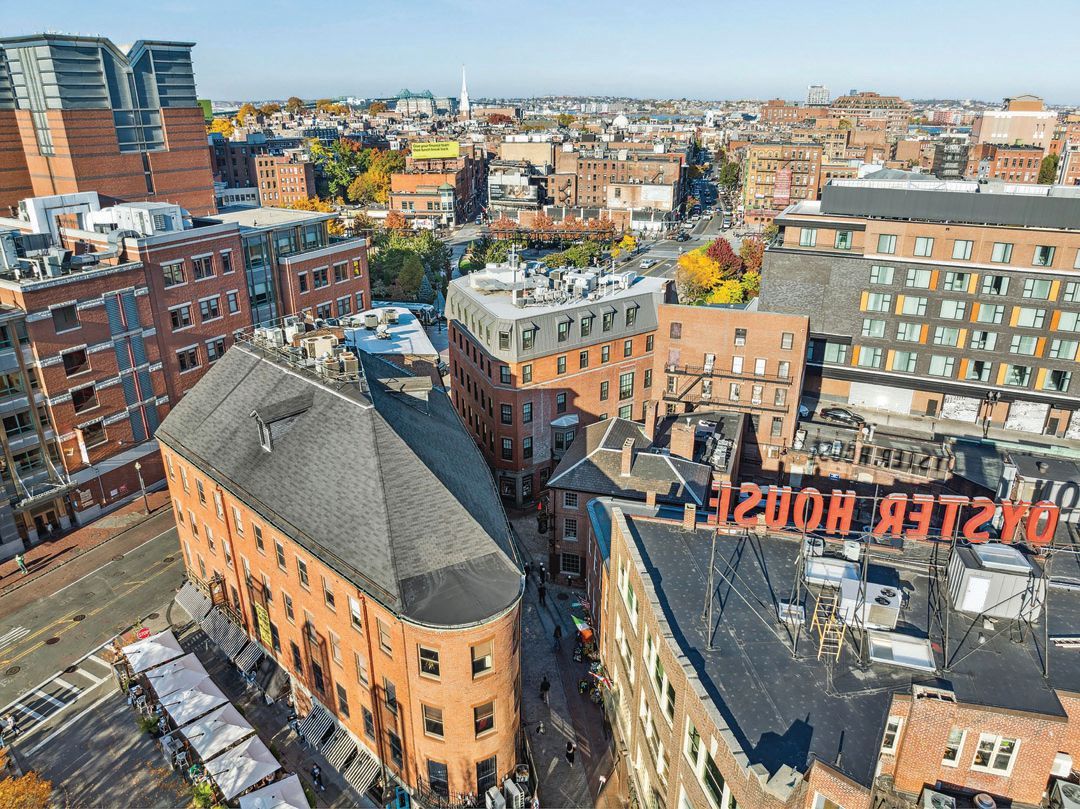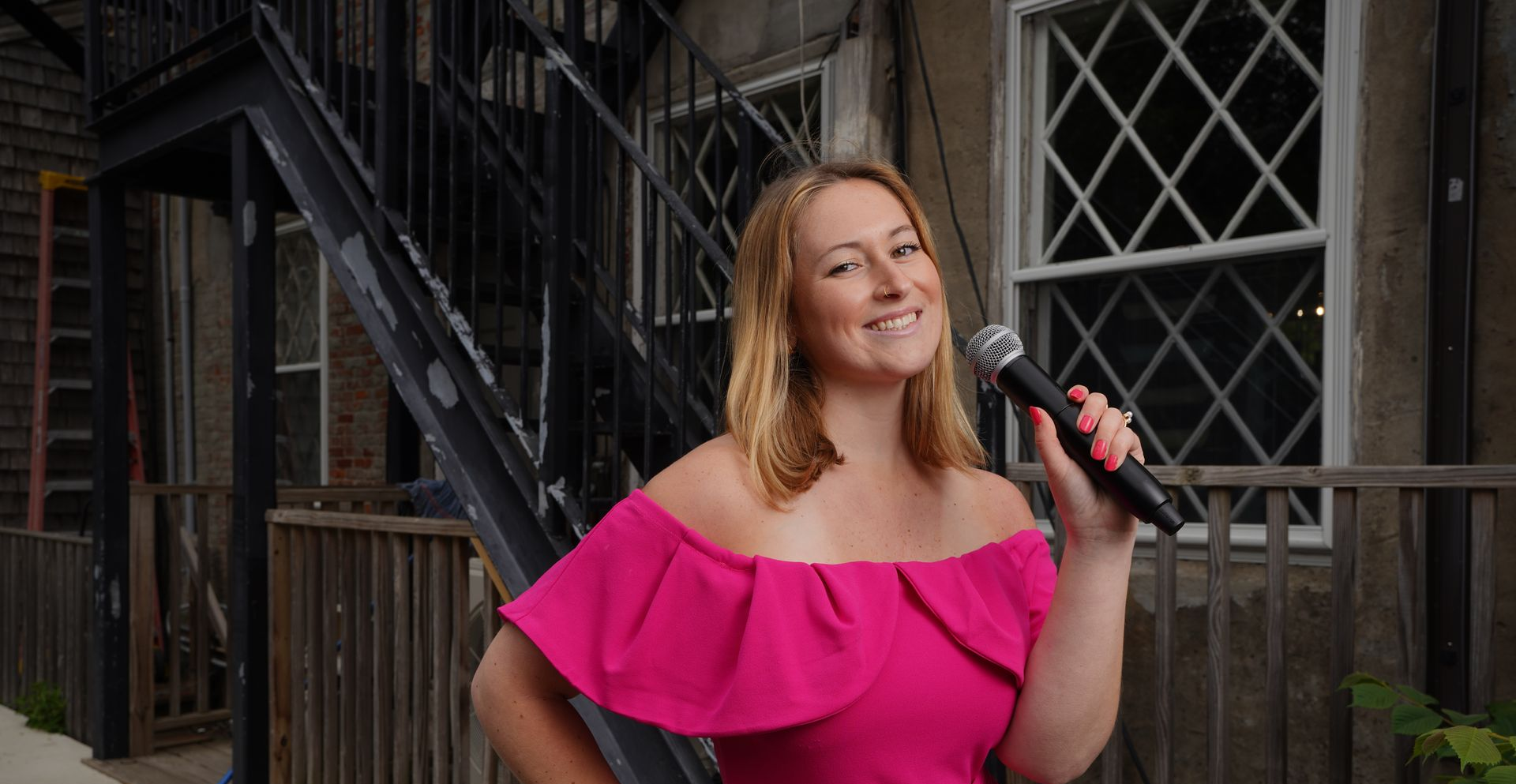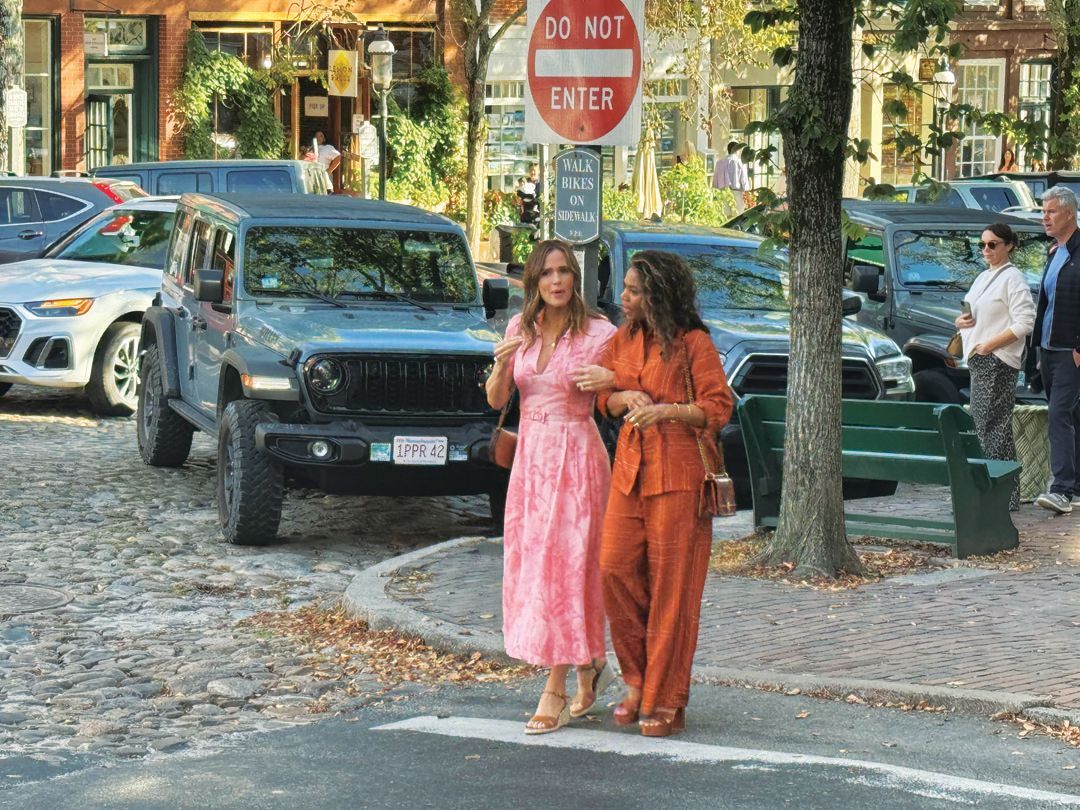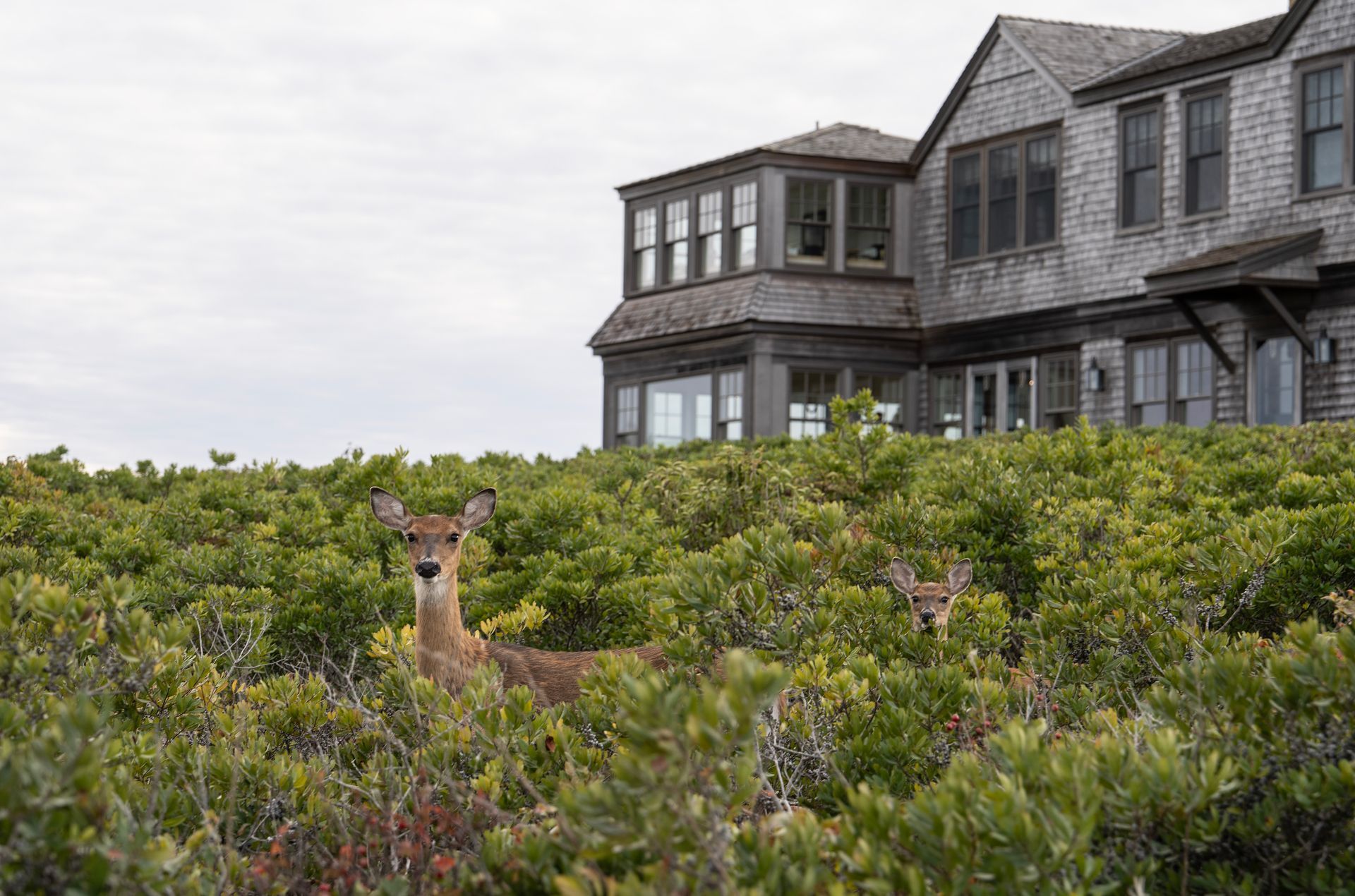RABBI ROCKS!
The unlikely musical career of Nantucket’s Rabbi Gary Bretton-Granatoor.
Who would have thought that the rabbi strumming a guitar on Jetties Beach while leading his congregation in tuneful prayer has rocked out with the likes of Jimi Hendrix drummer Tony Beard? Or that this same rabbi, who currently serves as president of the Nantucket Interfaith Council, has jammed with former Rod Stewart guitarist Jeff Golub? Or performed with Eric Clapton bass accompanist, Sue Williams, among others? Who would have thought that Nantucket’s rabbi has done gigs with members of the Saturday Night Live band and sometimes heads to L.A. to play guitar onstage with Frank Zappa’s son Dweezil? That’s the so-called double life of Gary Bretton-Granatoor, the rabbi who has been leading Friday night Shabbat services every summer on the island for the past nine years.
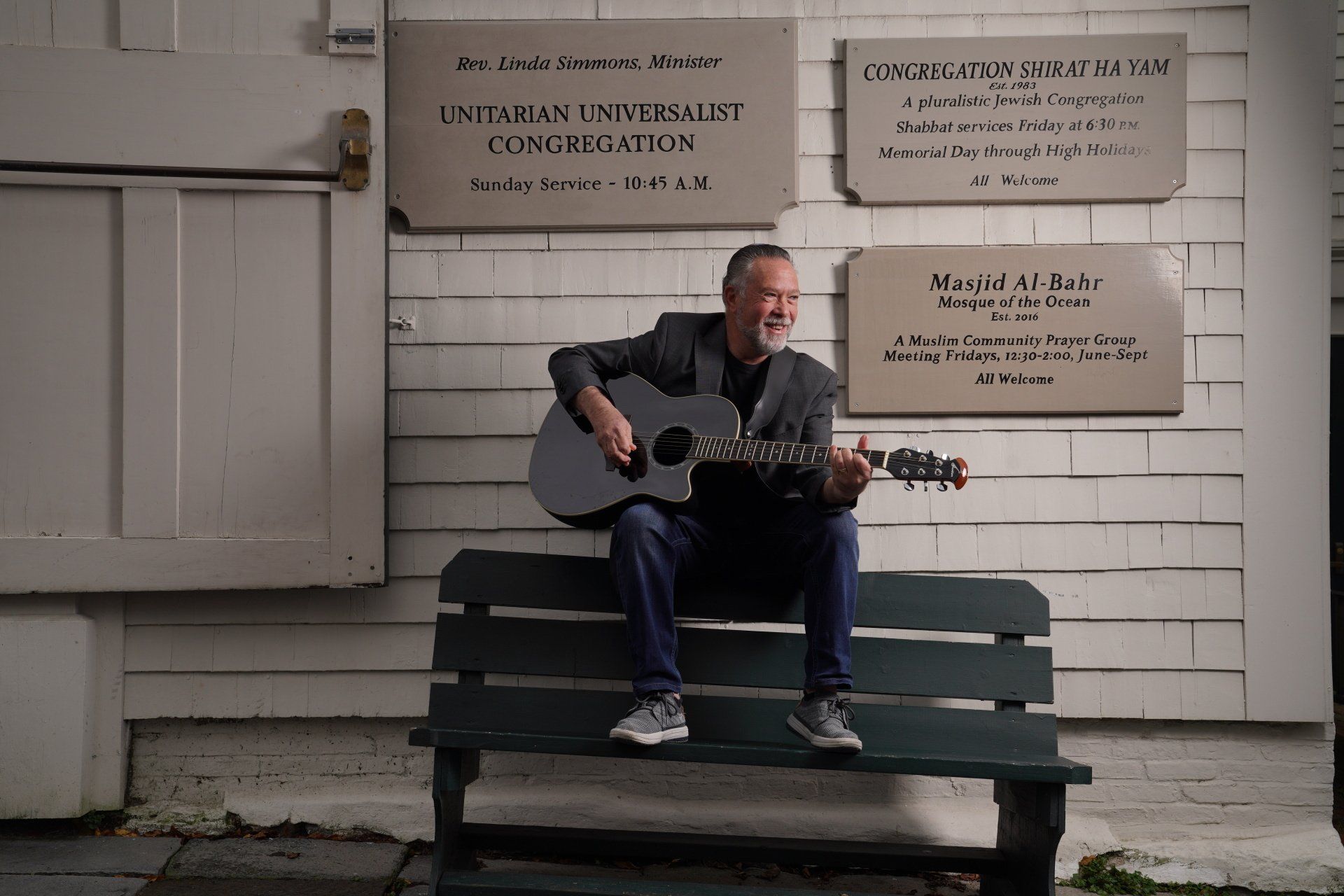
Most weekends, his congregation, Shirat HaYam (Hebrew for “Song of the Sea”), shares space with the Unitarian Universalist Meeting House on Orange Street. There, as on the beach, his guitar is slung across his chest. Happen on any of his services, and you might hear music reminiscent of Bob Dylan, Joni Mitchell, and other folk rock giants of the late 1960s and 1970s. A service might feature some music that’s Broadway-influenced as well. As Bretton-Granatoor explains, this can be chalked up to the movement for Reform Judaism in the late 1960s, which helped fuel a rebellion against “the cantorial music we grew up with in synagogues.”
Adapting prayers to popular music styles of the day is not new to the religion. Jewish people have tapped into the local cultures they have found themselves in throughout the diaspora, Bretton-Granatoor says. “We adopt the popular music of the time and add Hebrew liturgy to it, and that becomes Jewish music. One of the most popular ways of singing Judaism’s most important prayer, the Shema, is in three-quarter time, like a Viennese waltz. There were Jews listening to Viennese waltzes and putting the liturgy to that music. Some prayers are like German march tunes—that’s what people heard; that’s what they were listening to.”

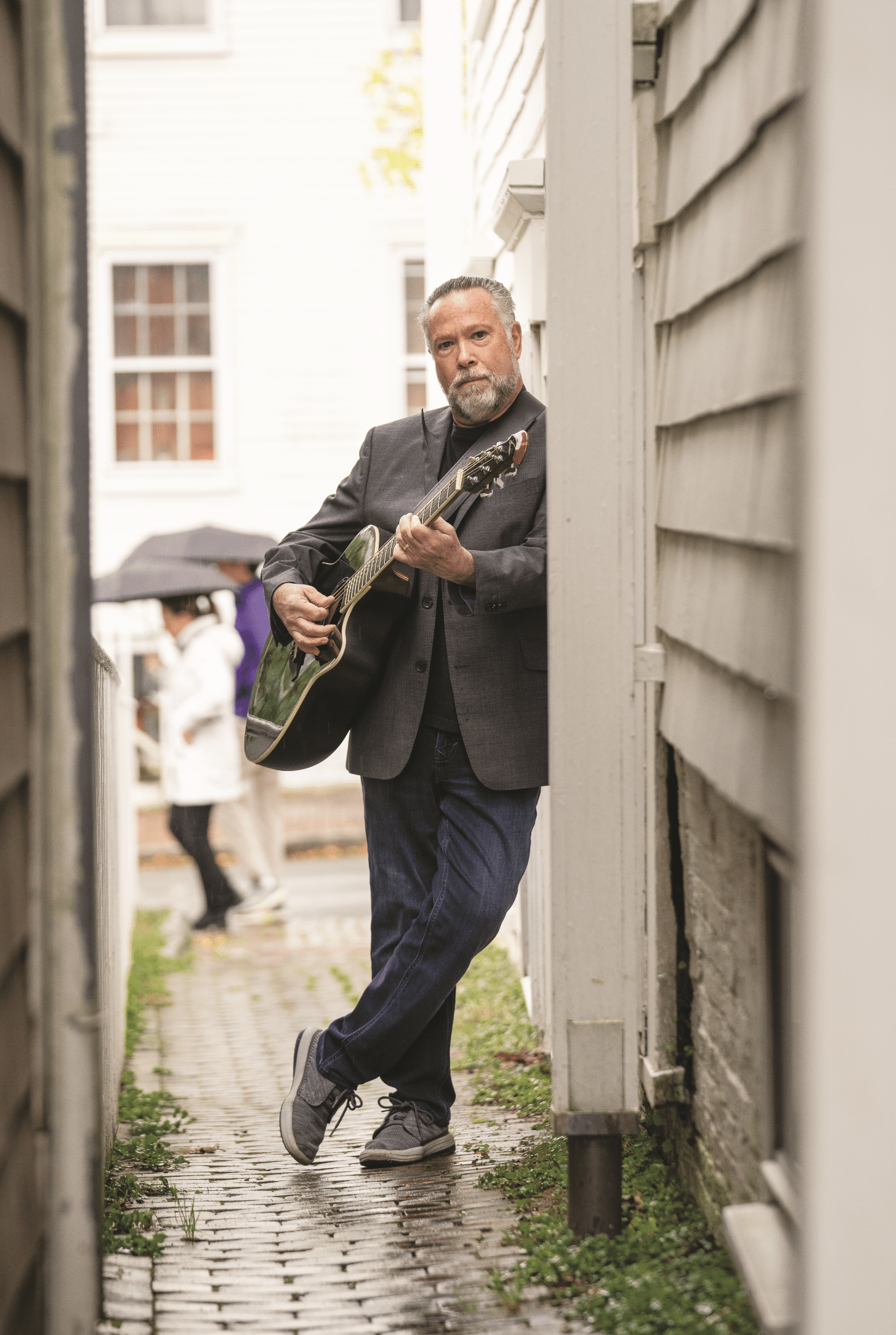
It’s all a far cry from the hard-driving rock you might hear coming from Bretton-Granatoor’s guitar when he’s on stage, but both types of music are used to engage people, to enhance a shared experience.
Bretton-Granatoor first picked up a guitar when he was seven, after going to a friend’s birthday party. “The entertainment was some guy with an electric guitar,” he says. “I remember staring at the guitar and the amplifier and being transfixed.” Fast forward to the ripe age of eleven, when he was already in a garage band and playing for money at parties and school dances. “We did everything from Moon River to The Doors’ Light My Fire to some Beatles,” he notes. By age twelve he had a manager, who signed him after hearing him play in his bandmates’ basement. The manager booked them a wedding at the Pakistani consulate, lots of gigs at the Star of India restaurant in New York City, and many other engagements. Playing rock and roll—and jazz—put him through college and seminary.
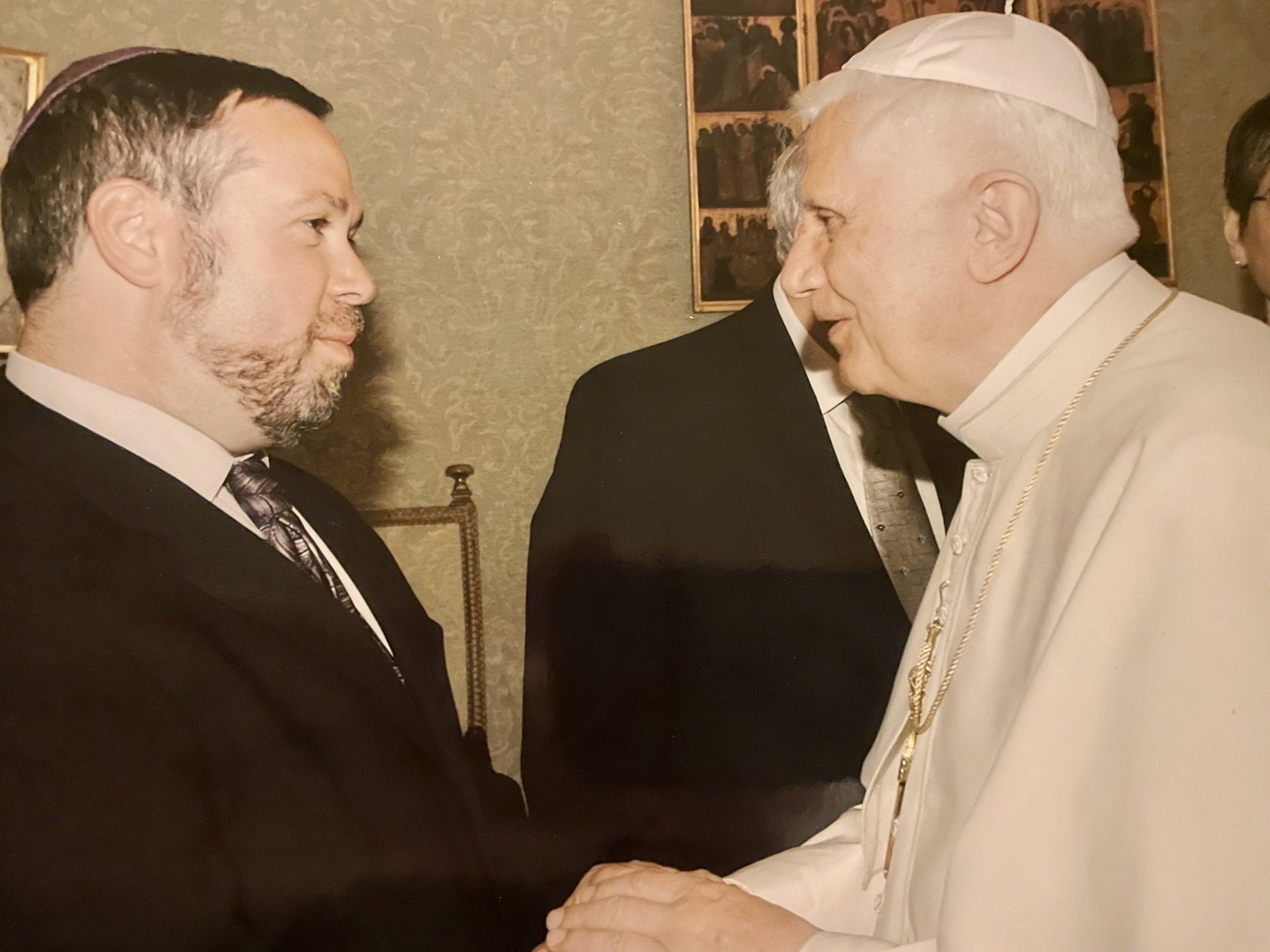
Today, Bretton-Granatoor says, “If I am leading services, it is always with a guitar.” On Friday evenings when he takes things outside to Jetties Beach, he brings along a sound system. The rabbi has what he calls “an amazing clarinet player” named Howard Bloom, who often accompanies him by the gentle surf. “We stand in front of the lifeguard station and do a Friday night service that ends right around sunset. We’ll get a crowd of people.” Indeed, people gather on beach blankets and lawn chairs.
Back at the meeting house, he might be joined on piano or cello by Mollie Glazer, who used to be the artistic director of the Nantucket Community Music Center. On the high holy days of Rosh Hashanah and Yom Kippur, which take place in September or October depending on the Hebrew calendar, Bretton-Granatoor will have three or four musicians on different instruments. His aim, he says, is always to create “an accessible and inspiring experience.”
When Rabbi Bretton-Granatoor is not playing music, he is often helping people in need. As president of the Nantucket Interfaith Council, he’s involved in providing assistance to islanders who might be struggling financially for food, fuel, rent money, and getting back and forth to Boston for medical care. He was also the founding chair of the Interfaith Assembly on Homelessness and Housing, in addition to serving as the Director of Interfaith Affairs for the Anti-defamation League. In his interfaith work, he has met with such luminaries as King Abdullah of Jordan, Pope Francis and the two popes before him, Jimmy Carter, former Italian prime minister Silvio Berlusconi, Turkey’s president Recep Erdogan, and the list goes on.
“Interfaith” is an important word for the rabbi, because creating dialogue and action around issues that affect people from all cultures helps mitigate what he calls the “human trait” of xenophobia. “At the taproot of prejudice is ignorance,” he says. “I don’t know you and you’re different, so therefore I don’t like you.” But interfaith involvement in social justice causes is the opportunity to meet human beings in their own space, and learn about them while they learn about you. It breaks down the ignorance, which breaks down the prejudice, all in service of creating a better world.
“Imagine if you had one of those thousand-piece jigsaw puzzles and you dumped it out on the table,” he says. “Every single piece is unique unto itself. And the goal of putting together the puzzle isn’t getting a pair of scissors and making it all fit easy, but to figure out where one unusual piece fits with another. All of a sudden, something beautiful is occurring. You’re creating something bigger, but at no point did any of these individual pieces give up its uniqueness. God had the power to make us all alike, if that’s what God wanted. But He left it to us to figure out a way that we can all respect each other, how we can all work together.”
Bretton-Granatoor says the music is an interfaith endeavor, a puzzle to put together, too. “Music is a language of collaboration,” he points out, “not just between musicians, but also between musicians and composer, and musicians and audience.” In other words, everyone is making and celebrating the music. Without a willingness to come together, the music falters and the best notes are lost.
